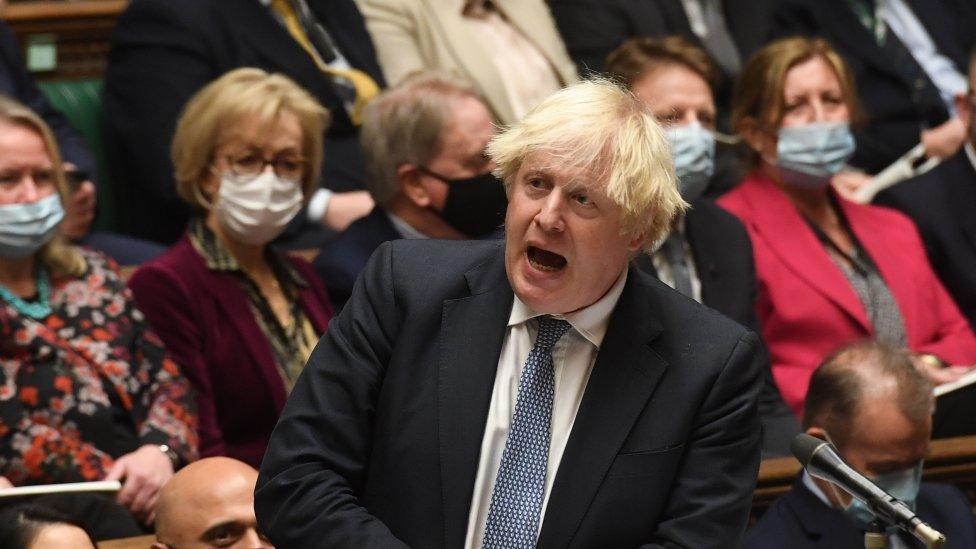Boris Johnson submits evidence before Partygate grilling
- Published
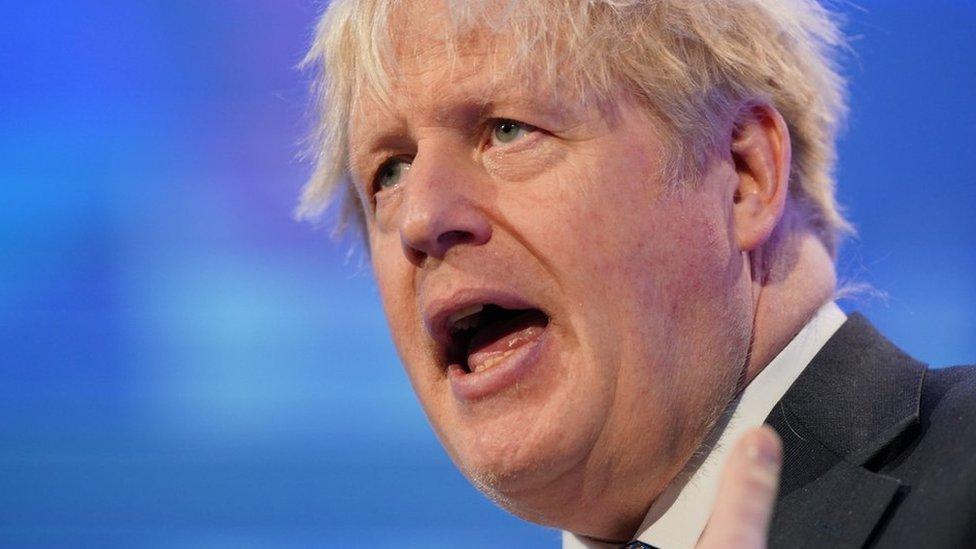
Boris Johnson has submitted evidence to MPs investigating whether he misled Parliament over Covid rule-breaking parties in Downing Street.
The former prime minister, who denies misleading MPs, wants his defence to be published as soon as possible.
The Privileges Committee said it was reviewing the material to make redactions before publication.
Mr Johnson will be questioned by the cross-party committee in a televised session on Wednesday.
In an initial report earlier this month, it found Mr Johnson may have misled Parliament multiple times.
The committee confirmed it had received Mr Johnson's written evidence on Monday afternoon and would publish it "as soon as is practicably possible".
However, a spokesman added: "The committee will need to review what has been submitted in the interests of making appropriate redactions to protect the identity of some witnesses."
Wednesday's session, which could last up to five hours, will be crucial in determining his political future.
If Mr Johnson is found to have misled Parliament, the committee will consider whether this was reckless or intentional, and recommend how he should be punished.
MPs would have to approve any sanction, but potential punishments range from ordering him to apologise to suspension from the Commons. If he is suspended for more than 10 days, this could trigger a by-election in his constituency.
Downing Street sources say MPs will be given a free vote, meaning they will not be told to vote either for or against the sanction.
The Privileges Committee, which is chaired by Labour's Harriet Harman, is made up of seven MPs - four Conservatives, one more Labour MP and one SNP MP.
Allies of Mr Johnson have raised concerns about the independence of the inquiry.
Conor Burns, a Tory MP who served as a minister under Mr Johnson, pointed to a tweet by Ms Harman in April last year, before the committee launched its investigation, where she suggested that by accepting a fine for breaking Covid rules, the then-prime minister would be admitting he misled Parliament.
He told BBC Radio 4's Westminster Hour: "Boris Johnson contests that but it seems to me the person who is chairing this committee has predetermined it and that causes me a degree of anxiety for Parliament's reputation in handling this with integrity."
Tory peer Lord Greenhalgh, who was a deputy mayor under Mr Johnson, told Times Radio he was worried the inquiry would be "a witch-hunt".
However, the prime minister's official spokesman has defended the investigation and endorsed comments from Commons Leader Penny Mordaunt that the committee must be able to "get on with their work without fear or favour".
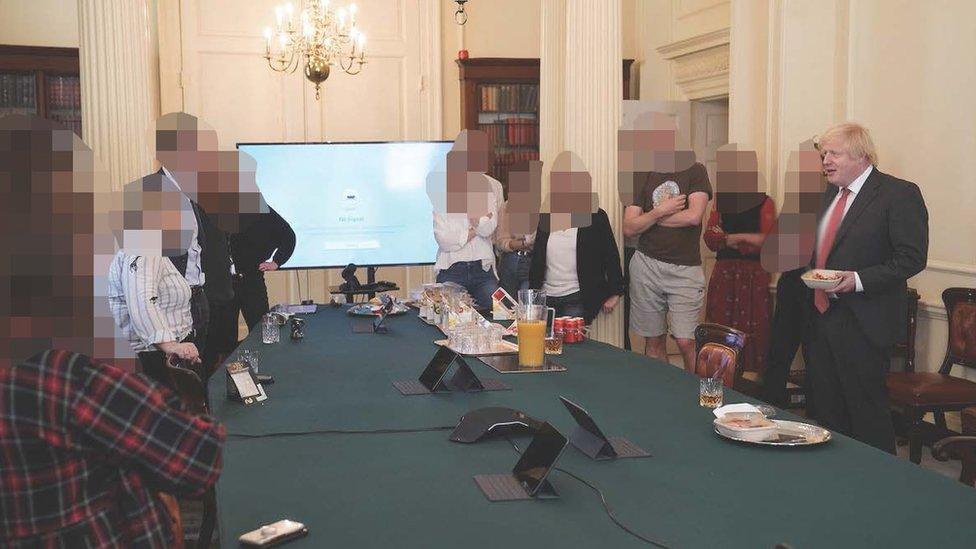
Boris Johnson celebrates his birthday - for which he received a fine - in a photo released by the committee
Reports of gatherings in government buildings during Covid lockdowns first emerged in late 2021.
On several occasions, Mr Johnson, who was then prime minister, told the Commons the rules had been followed.
He later admitted his original statements had since proved incorrect. However, he has insisted he believed them to be true at the time and that he had been assured this was the case.
An investigation by senior civil servant Sue Gray found widespread rule-breaking had taken place and a police inquiry led to 83 people, including Mr Johnson himself, being fined for attending events.
The Privileges Committee's initial report said it had seen evidence that "strongly suggests" Covid rule breaches would have been "obvious" to Mr Johnson.
Related topics
- Published3 March 2023
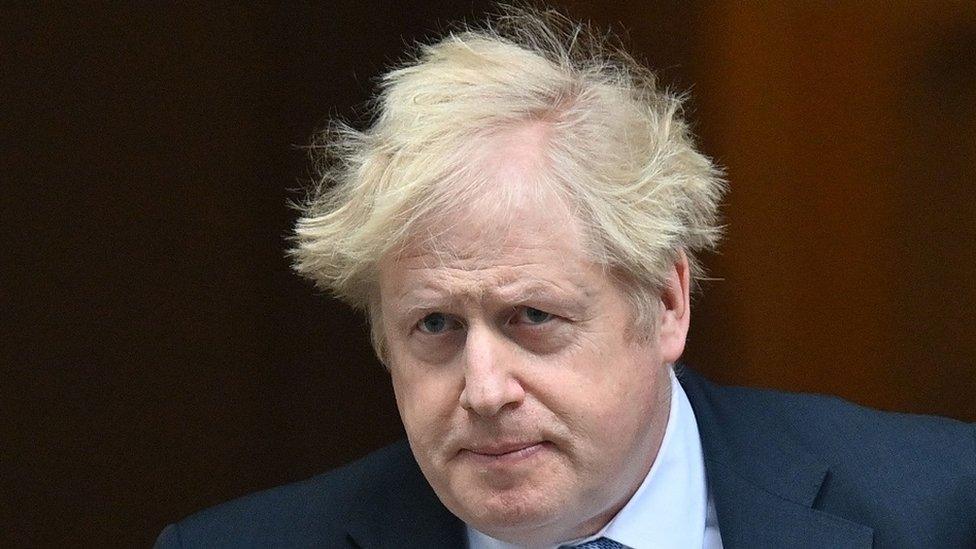
- Published3 March 2023
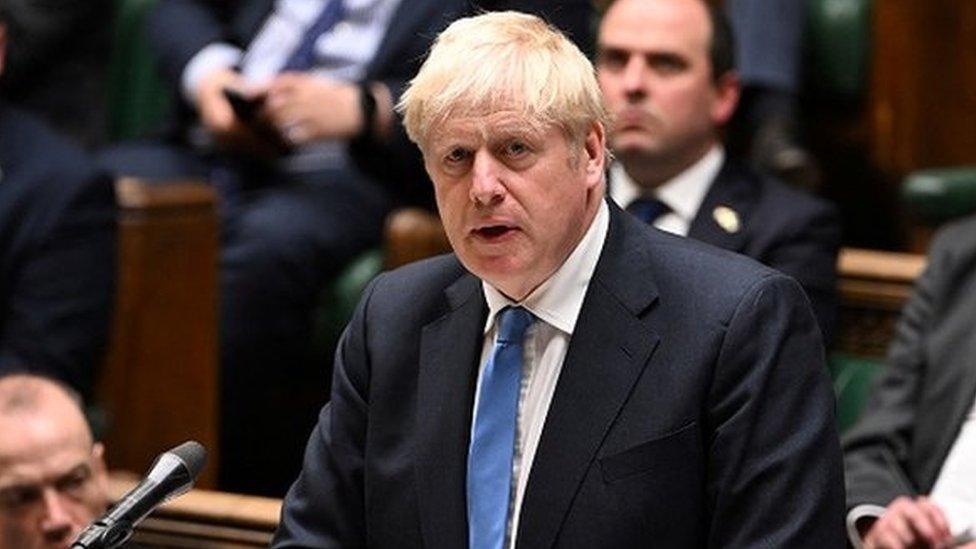
- Published22 March 2023
